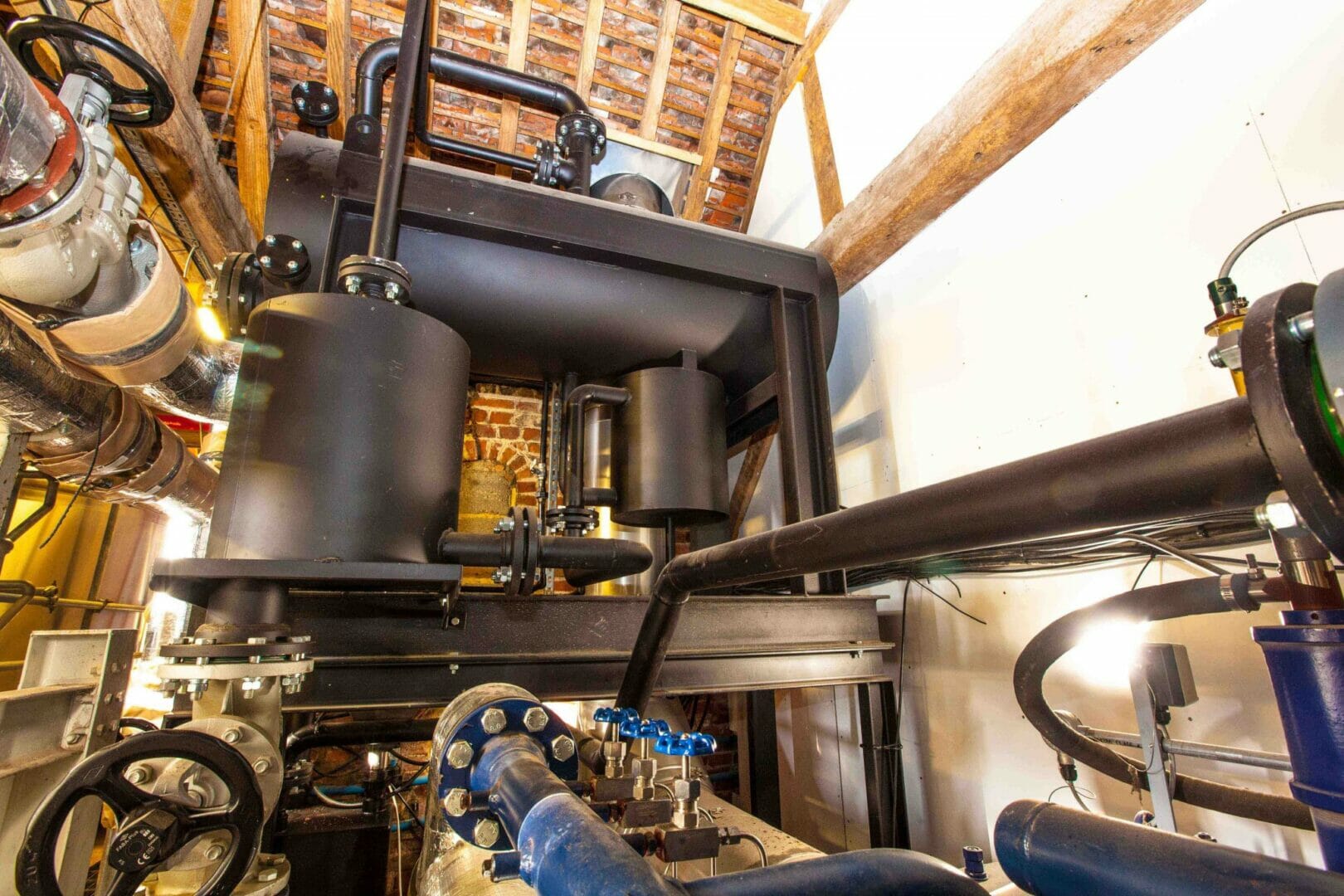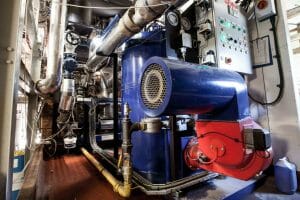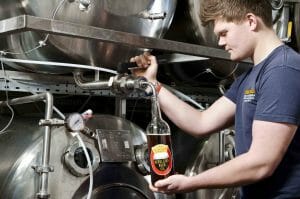Rebellion Beer Company was established in 1993 and specialises in brewing beer with natural, local ingredients. The company now brews around 14,000 pints per day, serving over 200 pubs within a 30-mile radius of Marlow, Buckinghamshire. The brewery produces three all-year ales and five seasonal ales, as well as one-off monthly brews. When the company needed to switch its boiler system to thermal fluid, to reduce maintenance costs, it approached Global Heat Transfer.
After securing a new 20 year lease on its premises in Marlow, Rebellion Beer Company felt it was time to upgrade its ageing steam boiler system. “As the steam system got older, the drawbacks were becoming more evident,” explained Paul Gloyens, Engineering and Project Director at Rebellion Beer Company.
“Steam systems require a relatively high level of maintenance to operate efficiently and safely. The steam supply is critical to the brewing process and we were finding that maintenance requirements were becoming increasingly difficult to fit in around our brewing schedule. The costs, both financial and in manpower, were an increasing burden on the company.”
Rather than changing to a newer steam boiler system, Rebellion explored different methods of heat transfer and decided to switch to a system that used thermal fluid. The company that stood out when Rebellion was researching the options was Global Heat Transfer.
“We were first contacted by Rebellion Beer Company in October 2015,” explained Clive Jones, Managing Director of Global Heat Transfer. “Rebellion had recently had its new heat transfer system fitted and asked us to prepare the equipment for the new thermal fluid, which we were also supplying.
“Global Heat Transfer’s first job was to flush the new system of any debris that might have been left over from the system’s installation. This allowed us to avoid contaminating the fresh thermal fluid that went in the system. Once the system was flushed, our engineers filled it up and gradually started to commission the fluid by turning the system on and bringing it up to temperature in increments of ten degrees Celsius.
“This created a turbulent flow within the system, which ensured the thermal fluid heated up consistently without creating any hot spots on the pipe work. This was particularly important because we wanted to avoid the build-up of carbon, which could potentially harm the system.”
Rebellion has now been using the thermal fluid system for 18 months and believes that it has met all their operational requirements, while improving energy efficiency and reducing the maintenance burden.
“There is no doubt that we made the right decision working with Global Heat Transfer. The company is a specialist in thermal fluid management and its Globaltherm Food Grade (FG) thermal fluid is high performing, non-toxic, odourless and colourless. It comes with an NSF HT-1 accreditation, making it perfect for food processing applications,” continued Gloyens.
Going forward, Global Heat Transfer will continue to support Rebellion Beer Company through proactive maintenance, by regularly drawing and analysing live, hot samples of the thermal fluid.
“Heat transfer fluids can degrade as a result of chemical reactions in the presence of oxygen, a process commonly referred to as oxidation,” commented Jones. “The products of oxidation will cause sticky carbon deposits, which may be corrosive to a heat transfer system. To maintain a safe working environment, it is essential that the by-products of decomposition are monitored routinely and measured accurately.
“Taking a closed, hot, live circulating sample provides an accurate flash point temperature and is therefore the only way to gain a true representation of the condition of your thermal fluid. A cautionary rating is normally given to a flash point temperature above 110 degrees, which allows plant managers to plan an intervention to mitigate the decline.”
Heat transfer management should not stop once the new system is fitted and filled. Systems need proactive maintenance to extend their lifecycle and run efficiently for a long period of time. Just ask the people who drink the 14,000 pints Rebellion Beer Company brews each day.
For more information about Global Heat Transfer’s long-term maintenance solution, award winning Thermocare, get in touch on 01785 760555.









